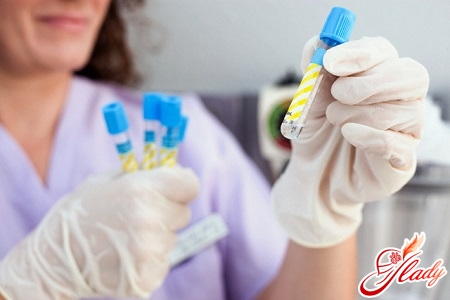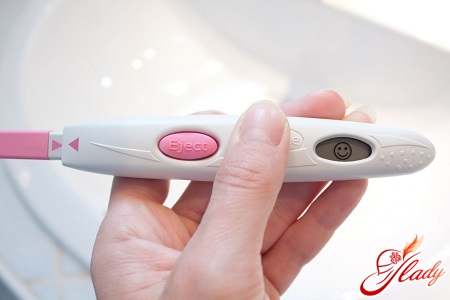
Abundant secretions with a smell from the genitalsshould be considered as a symptom of a disease. Therefore, you should not self-medicate or, worse still, hope that everything will pass. In this case, it is necessary to carry out a diagnosis to establish an accurate diagnosis. Abundant discharges occur quite often. They suffer about 35% of the total female population. This is one of the most frequent complaints of women that they make when they come to see a gynecologist. However, not all women come with this problem to the doctor, so in the medical literature one can find other data on the prevalence of this unpleasant symptom. Sometimes this symptom can reach 90%.
Causes of pathological discharge from the genital organs
Appearance of secretions from the genital tract, whichhave an unpleasant smell, can be due to various reasons. Therefore, the first thing to do is to visit a doctor, take tests and tests, and only after that you can begin treatment. Among the most significant causal factors are:
- various inflammatory processes, which are caused by microorganisms that affect the sexual organs of a woman. In this case, abundant discharge is not uncommon;
- diseases of endocrine glands that are characterized by changes in hormonal balance in the body;
- diseases of a general nature, accompanied by a metabolic disorder of varying severity;
- pathological copious discharge may result from prolonged and severe antibiotic therapy;
- douching the vagina using various antiseptic agents. Remember, if fluid begins to be released from the vagina, douching should be stitched;
- use of intrauterine contraceptives, which increase the incidence of infectious and inflammatory diseases of the genital organs;
- trauma of the cervix and various background pathological processes that negatively affect the state of the cervical epithelium. In this case, abundant discharge is a reaction to damage;
- various oncological processes, the source of which are the sexual organs. The liquid thus smells specifically;
- sometimes pregnancy can provoke the appearance of secretions with an unpleasant odor, as the composition of the vaginal microflora changes against the background of hormonal changes in the body;
- impact of damaging environmental factors (radiation radiation, various chemicals);
- factors that cause local irritation (wearing tight underwear, strings, using highly allergenic means for intimate hygiene);
- the presence of urogenital fistulas and intestinal-vaginal, in which the organs of one system communicate with the organs of another system.
The most common infectious and inflammatory diseases of the genital organs, which are accompanied by an unpleasant odor, are represented by the following species:
- bacterial vaginosis, when the anaerobic conditionally pathogenic microflora prevails in the vagina (gardnerella predominates in the first place), and the normal flora is practically absent;
- trichomoniasis (infection with Trichomonas);
- candidiasis;
- gonorrhea;
- chlamydia.

Dependence of causal factors on the age of life of a woman
There is a certain pattern betweencausal factors of the emergence of secretions with an unpleasant odor, which occur in certain age periods of a woman's life. Let's try to figure this out. Knowledge of these factors will lead to etiologically (causally) justified therapy without additional examination, associated with material costs and time loss. So, the situation is as follows. In the newborn period, the most common abnormal copious discharge from the genital tract is associated with a change in the content of estrogen. In the period of puberty girls the dominant causative factor is vulvovaginitis, that is inflammation of the mucous membrane of the vulva and the vagina. In the adolescent period, abundant discharge with an unpleasant odor is usually associated with the penetration of pathogenic flora from the intestine into the organs of the reproductive system. In the reproductive period, the most common cause is inflammation of the female genital organs. In the climacteric, the atrophic process of the mucous membrane leads to unpleasant secretions. In menopause, the first thing to think about is an oncological process that affects the woman's genitals.
Protective mechanisms of the genital tract of a woman
Normally the genital tract is reliably protected fromof microorganisms. If these protection mechanisms fail or the microorganism that gets caught is highly virulent, an infectious process occurs. Factors that protect the sexual organs of women include the following:
- presence of lactobacilli in the vaginal microflora;
- acidic environment of the vaginal contents;
- slimming epithelium during menstruation;
- presence of secretory immunoglobulins class A on the mucosa;
- presence of mucous barrier, etc.
They help to preserve the health of womenthe organism by protecting genitals from various microorganisms and damaging factors. If something goes wrong, there are abundant secretions with a rather unpleasant odor.
Classification of pathological discharge from the genital tract
Abundant discharge from the genital organs, whichhave an unpleasant smell, can have a different origin depending on where the pathological process is localized. Specification of the source of secretions will allow for differentiated treatment. It is advisable to distinguish the following types of pathological discharge from the genital organs:
- vestibular - abundant secretions are associated with the secretion of the glands of the vestibule, as well as with the functional activity of the bartholin glands;
- vaginal - are associated with the stimulation of glandular cells of the vagina;
- uterine - arise with pathological processes affecting the uterus;
- tubal - these discharges appear if the mother tube is involved in the pathological process;
- cervical - are caused by increased stimulation of glands located in the cervical canal and on the surface of the cervix.

Clinical picture with similar problems
The main sign of the pathological process inthe sexual organs of a woman is an increase in the number of secretions. These secretions have an unpleasant odor. May also be accompanied by other symptoms, such as itching and burning in the vulva. The constant increased secretion of the glandular epithelium of the genital tract leads to excessive moistening, which causes some discomfort for the woman. Diagnostic search for excretions The presence of secretions from genital organs that have an unpleasant smell is always an indication for carrying out a diagnostic search, the purpose of which is to clarify the reason for their appearance. Only knowledge of the cause will allow for appropriate corrective therapy. To start a diagnostic search is necessary with an objective investigation (this is an examination and a vaginal examination), in the course of which it is necessary to adhere to certain rules. This will provide the most reliable information. As for the rules of an objective examination of a woman who complains about unpleasant abundant discharge. Objective research allows you to obtain the maximum information that is necessary to establish the exact cause of the appearance of pathological discharge from the genital tract. The following rules should be observed:
- vaginal examination is performed during the period of the most pronounced clinical manifestations (when complaints appear, you should immediately contact a gynecologist, even if the discharge is uninvested);
- after the last reception of an antibacterial drug should take at least 3 days;
- be sure to examine not only the genitals, but also the opening of the urethra, as well as the anus and the skin of the perineum;
- in some cases, not only a vaginal, but also a rectal examination is indicated.
After an objective examination, the doctor schedulesa definite plan of diagnostic measures, setting out a preliminary diagnosis. Further examination is aimed at either confirming or refuting the diagnosis. Additional research methods In the presence of pathological secretions from the genital tract with an unpleasant odor, naturally, both mandatory and optional methods of laboratory and instrumental diagnostics can be carried out. In the course of these studies, it can be concluded whether the vaginal flora is in a state of normocenosis or there is a dysbacteriosis, that is, a violation of the normal quantitative and qualitative composition of the microflora. Mandatory methods of research The mandatory methods of research, which are recommended in the presence of secretions from the genital tract with an unpleasant odor, include:
- determination of the nature of the vaginal microflora;
- taking a smear to identify trichomonads;
- the detection of gonococci in the smear;
- determination of candida spores in the smear;
- diagnosis on chlamydia and ureaplasma(for this purpose, both serological testing and polymerase chain reaction, which is the "gold" standard for diagnosing urogenital infections) can be used;
- determination of titers of herpes viruses, papillomaviruses, cytomegaloviruses, HIV.
The conduct of these studiesthe presence of the most common causal factors that lead to the appearance of pathological discharge from the genital tract. Additional studies have less diagnostic value, therefore they are used only according to indications. 
Principles of treatment of pathological discharge from genital organs
Treatment of pathological discharge from the genital tractmust be carried out in a timely manner and taking into account the potential cause. Be sure to take into account the age of the patient and the hormonal background. Treatment of pathological leukemia, which are associated with a violation of the microflora in the vagina, usually consists of two stages: the elimination of the pathological agent and the restoration of normal microflora in the vagina. With hormonal causes and atrophic processes, the main thing in treatment is the restoration of the normal hormonal balance. If the cause of secretions from the genital tract with an unpleasant odor is the intrauterine contraceptive, then its removal is indicated. The development of the inflammatory process in the vagina on the background of diabetes mellitus requires adequate hypoglycemic therapy, etc. The place of antibiotics for the treatment of discharge As a rule, if the abundant discharge from the genital tract is associated with the activation of the opportunistic microflora, then the use of local antibiotics that have such medicinal forms as suppositories, vaginal pills, creams and others is indicated. The most commonly used drugs that have a harmful effect on intracellular pathogens: chlamydia, mycoplasma, ureaplasma and so on. If the cause of the secretions are Candida yeast fungi, then the use of drugs with antimycotic activity is indicated. It can be candles (in some cases, just one candle per course of treatment).
Restoration of normal vaginal microflora
It is an obligatory process in the treatment of anyinflammatory process in the vagina, since a normal vaginal microflora is able to protect the mucosa from the introduction of pathogenic microorganisms. To this end, drugs containing lactobacilli are used. These medicines include candles that are applied once a day and injected into the vagina for 10 days. Also for the restoration of normal microflora in the vagina it is recommended to use kefir, which is the source of lactic acid bacteria. In elderly people, this also shows the use of hormonal drugs, which can be used either locally or systemically. The need for their application is explained by the fact that lactobacilli are estrogen-dependent, so with a low level of estrogens they simply do not get accustomed. From local preparations, medicinal suppositories are used based on Estriol.
Control of treatment effectiveness
Evaluation of the effectiveness of the treatmentis performed on the basis of regression of clinical symptoms, as well as on the basis of the results of laboratory research. With effective treatment, the disappearance of pathogenic microorganisms in the smear is observed. However, the course of treatment should be completed to the end, so that there is no recurrence of secretions that have an unpleasant odor. Thus, abnormal copious discharge from the genital tract can be associated with various causes, but in any case they should be considered as a variant of pathology. To conduct effective treatment, it is necessary to establish the exact cause, which must be eliminated in the future. Treatment of discharge should be started as early as possible and prescribed only by a doctor, as self-medication can be accompanied by the development of superinfection, which is difficult to treat.









